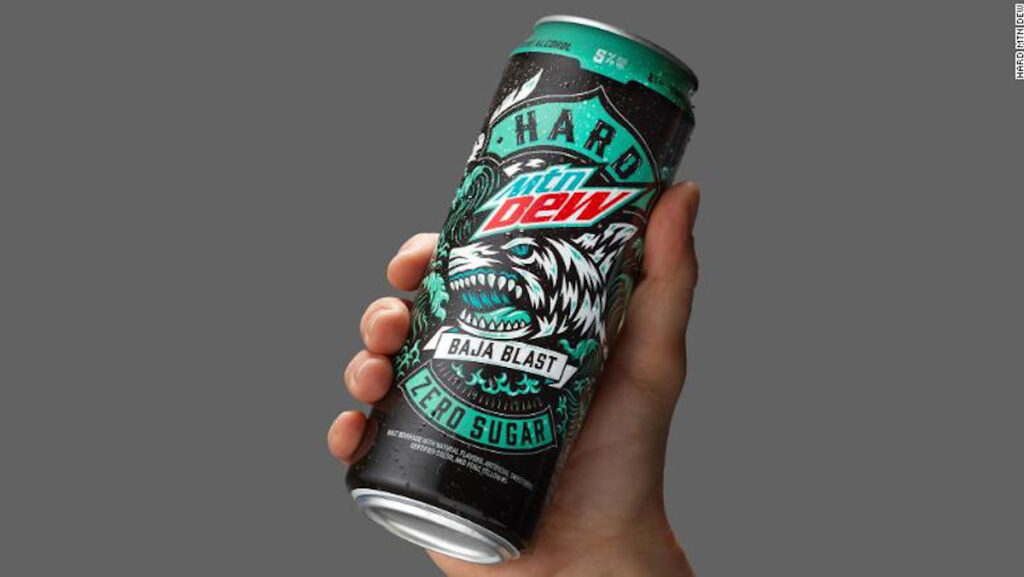In the ever-evolving landscape of the beverage industry, there’s a new player that has taken the market by storm – Hard Mountain Dew. Known for its intense combination of the classic citrus-flavored soda and a kick of alcohol, Hard Mountain Dew has quickly become a favorite among consumers seeking a unique and exhilarating drinking experience. In this article, we’ll delve into the origins, flavor profile, and the cultural impact of Hard Mountain Dew.
The Genesis of Hard Mountain Dew
The journey of Hard Mountain Dew began when the beverage giant PepsiCo recognized the growing trend of alcoholic seltzers and hard beverages. In response to the increasing demand for innovative and exciting drink options, PepsiCo decided to venture into the alcoholic beverage market. Leveraging the iconic Mountain Dew brand, known for its bold and citrusy flavor, they introduced a new and daring product – Hard Mountain Dew.
Released as a testament to the company’s ability to adapt and innovate, Hard Mountain Dew represents a departure from the traditional non-alcoholic sodas that have been a staple for decades. This bold move was not without risk, but it seems to have paid off as Hard Mountain Dew has found a receptive audience among consumers looking for a different kind of refreshment.
Flavor Profile
Hard Mountain Dew retains the unmistakable citrus flavor that has made its non-alcoholic counterpart a beloved beverage worldwide. However, what sets it apart is the infusion of alcohol, creating a novel taste experience for consumers. The combination of sweet and tangy notes from the soda base with the warmth of the alcohol creates a distinctive flavor profile that appeals to a wide range of palates.
The alcohol content in Hard Mountain De’w is typically derived from fermented sugars, providing a light and refreshing buzz without the heaviness often associated with traditional alcoholic beverages. This balance of flavors has contributed significantly to its popularity, especially among those who enjoy the fusion of classic tastes with a modern twist.
Cultural Impact
The introduction of Hard Mountain De’w has had a notable impact on drinking culture, sparking conversations and gatherings centered around this unique beverage. The fusion of a beloved soda with alcohol has created a product that transcends traditional boundaries, appealing to both seasoned cocktail enthusiasts and casual drinkers alike.
Hard Mountain Dew has become a symbol of experimentation and innovation in the beverage industry, setting a precedent for other companies to explore new horizons. Its success has prompted competitors to consider introducing their own variations of alcoholic sodas, marking a shift in consumer preferences towards more dynamic and unconventional drink options.
The marketing of Hard Mountain De’w has also played a crucial role in its cultural impact. PepsiCo has strategically positioned the product as a symbol of adventure and thrill, aligning it with the bold and daring spirit of those who seek excitement in their beverage choices. The marketing campaigns have successfully captured the attention of a younger demographic, positioning Hard Mountain De’w as a go-to choice for those looking to break away from the ordinary.
Challenges and Controversies
While Hard Mountain De’w has achieved considerable success, it has not been without its fair share of challenges and controversies. Critics have raised concerns about the potential appeal of an alcoholic beverage that carries the branding of a soda popular among younger demographics. Some argue that the association with a well-known non-alcoholic brand may inadvertently attract underage consumers.
To address these concerns, PepsiCo has implemented stringent age verification measures and educational campaigns to ensure responsible consumption. The company has emphasized the importance of enjoying Hard Mountain De’w in moderation and within legal drinking age limits. Despite these efforts, the debate over the responsibility of marketing alcoholic beverages with ties to non-alcoholic brands continues.
The Future of Hard Mountain Dew
As Hard Mountain Dew continues to gain traction in the market, the future looks promising for this groundbreaking beverage. The success of this product has paved the way for further innovation in the alcoholic beverage industry, inspiring other companies to explore unique combinations and flavors.
PepsiCo, too, is likely to expand its offerings within the Hard Mountain Dew line, introducing new variants and limited-edition releases to keep consumers excited. The evolving landscape of consumer preferences suggests that the demand for bold and unconventional beverages will persist, making Hard Mountain Dew a key player in the ongoing transformation of the industry.
Conclusion
Hard Mountain Dew has emerged as a trailblazer in the world of alcoholic beverages, successfully marrying the familiar citrusy notes of Mountain Dew with a tantalizing kick of alcohol. Its unique flavor profile, coupled with strategic marketing, has propelled it into the spotlight, creating a cultural phenomenon that extends beyond traditional beverage norms.
While challenges and controversies have surfaced, the overall impact of Hard Mountain De’w on the beverage industry cannot be denied. As consumers continue to seek novel and exciting drinking experiences, the success of Hard Mountain Dew serves as a testament to the power of innovation in meeting evolving preferences. Whether you’re an avid fan or a curious observer, Hard Mountain De’w invites you to savor the thrill of a classic soda with a bold twist.







